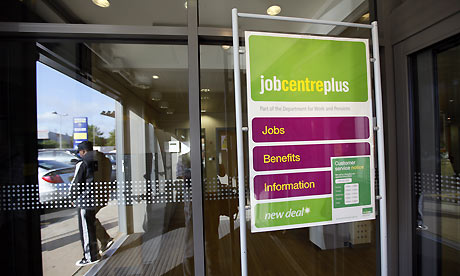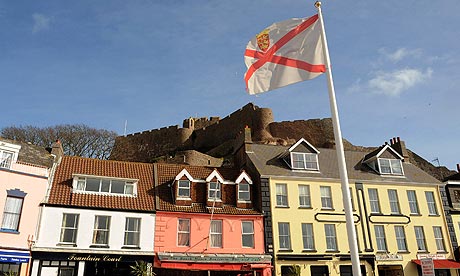The collapse of Lehman Brothers a year ago had serious ramifications for other banks, not least HBOS, which was forced to seek a merger with Lloyds TSB. At the time the deal looked problematic but it soon turned out to be disastrous for Lloyds, with the Government having to step in to bail it out and its chairman, Sir Victor Blank, eventually stepping down. We take a close look at the merger
It was in a three-bedroom flat in a plush corner of St James's in Mayfair that HBOS received its last rites as an independent bank. Andy Hornby, chief executive, often stayed in the executive apartment when away from his Yorkshire home but this time the flat would serve an altogether different purpose.
Hornby was preparing to sell Britain's biggest mortgage lender in a deal that would be struck in the space of 12 hours and reshape the face of UK high street banking forever. The alternative was unthinkable: nationalisation.
Related Articles
All Hornby's hopes rested on a merger with Lloyds TSB. Conscious that such a huge deal would require utter secrecy, he decided the most private venue for talks was HBOS's Mayfair suite. With him were his finance director, Mike Ellis, and main adviser, Simon Robey of Morgan Stanley. From Lloyds, Eric Daniels, chief executive, arrived with finance director Tim Tookey and his lead adviser from Merrill Lynch, Matthew Greenburgh. It was the middle of the afternoon on September 16, the day after Lehman Brothers' collapse, and HBOS's shares were in a tailspin.
HBOS had long been considered Britain's most vulnerable lender because of the £198bn mismatch between loans and deposits that made it heavily reliant for funding on the paralysed money markets. Lehman's failure the day before was the final straw. Confidence had evaporated and by Tuesday it was clear the run on the stock would soon become a run on the bank.
The six began hammering out a plan. Although presented as a merger, Lloyds would take over HBOS at a discount to its book value. In the driving seat, Lloyds took a firm negotiating stance, while "Andy was in a state of panic", one person at the meeting said. "There was a lot of aggression between the two teams. You always get that in a bid but this was compressed into a few moments and the stakes were enormous. Obviously, it got heated."
Room service was ordered as the hours wore on. At one point, Sir Nick Macpherson, Permanent Secretary to the Treasury, arrived to discuss how the Government would honour a pledge to override competition rules made the previous day by the Prime Minister to his friend and Lloyds' chairman, Sir Victor Blank. Satisfied, Macpherson left, leaving the bankers to battle over terms until the early hours.
By 3am, an indicative price of 285p a share was struck and senior politicians informed but, almost immediately, it became a point of contention. The following morning, HBOS shares continued their dramatic collapse. Fears that the bank would not have the liquidity to meet counter-party demands and collapse before the deal was signed meant that news of the talks was leaked. Robert Peston, the BBC's business editor, carried on his blog at 9am that Lloyds had bid "near 300p a share". HBOS shares immediately rallied and the worst fears were allayed.
Daniels, though, was furious. He had indicated a price, not agreed one, and threatened to pull out altogether. Despite pressure not to renegotiate from politicians and HBOS, Daniels refused to be coerced into the deal. With nationalisation looming, Hornby, now in his office at Bishopsgate, was again reduced to "a state of high anxiety".
However, Daniels was not going to let the long-sought trophy slip from his grasp. He had first approached Hornby about a merger two months earlier, when HBOS's £4bn emergency rights issue was in jeopardy. Hornby had dismissed it on the grounds that the competition authorities would never approve, just as he had when the two men had broached the subject in the past. But a seed was sown.
Later, Sir Victor took the issue up with the Prime Minister on a business delegation to Israel, when an understanding was reached that, if necessary, the Government would protect Lloyds from the competition authorities. It was Sir Victor who called Lord Stevenson, the HBOS chairman, on the fateful Tuesday morning. As one insider put it: "He told Dennis, 'We've got the go-head from Gordon Brown on competition. You've got to do something'."
As time ebbed by on the Wednesday, and aware a deal had to be announced the following morning, Daniels relented and by mid-afternoon returned with a lower offer of 232p a share. In no position to negotiate, a relieved Hornby accepted. So began another sleepless night – this time in the offices of Lloyds' lawyers, Linklaters. About 30 people from each side prepared the documents over "pizza and limp salads" as the office lights blazed. The merger was announced the following morning.
In the immediate aftermath, with HBOS stabilised, Daniels was hailed as a banking saviour. But nagging doubts slowly surfaced as it became clear Lloyds had not secured any protection from the Government. Lloyds had simply imported HBOS's £198bn funding gap on to its own balance sheet.
The strategy, it seemed, was to gamble that Lloyds' reputation as a conservative bank would reassure markets. Unfortunately, the reputational influence worked the other way. HBOS, the bigger bank, soon began infecting Lloyds with its bad commercial and mortgage lending. The markets did not recover from the Lehman aftershocks and, on October 13, the UK's largest-ever banking bail-out was launched.
One banker observed that "Lloyds had a chance to pull out or demand extra Government support" over the weekend that the rescue was devised. Instead, they negotiated a 27pc reduction in the offer, from 0.833 new Lloyds shares for each HBOS share to 0.605. At that price, the deal transferred £15bn of value to Lloyds and it promised another £1.5bn in annual synergies. At the same time, the Government injected £17bn of capital into the combined bank, £5.5bn specifically for Lloyds, for a 43pc stake. Hypnotised by the value transfer, though, Lloyds shareholders voted the deal through.
That £15bn now looks like poor compensation for the losses incurred. HBOS made a £10.8bn pre-tax loss in 2008 and another £9.5bn loss in the six months to June. The scale of the HBOS's bad lending forced Lloyds to pledge £260bn of "toxic" assets to the taxpayer-backed insurance scheme, which it is now desperately trying to wriggle out of by raising capital independently. Making matters worse are European competition regulators, who are threatening to unpick the deal. In the worst-case scenario, Lloyds, which now has a third of the UK's mortgage and current account markets, could be forced to demerge Halifax.
Investors are seething at the loss of shareholder value and furious that Lloyds abandoned its reputation as a conservative lender. The merger has already cost Sir Victor the chair and many believe his replacement, Sir Win Bischoff, who joined this week, will shortly arrange Daniels' departure. In time, if the competition regulators allow it, the deal – hatched over a few hours in a Mayfair flat – may prove the doubters wrong. For the moment, though, it is viewed as among the most calamitous ever.




